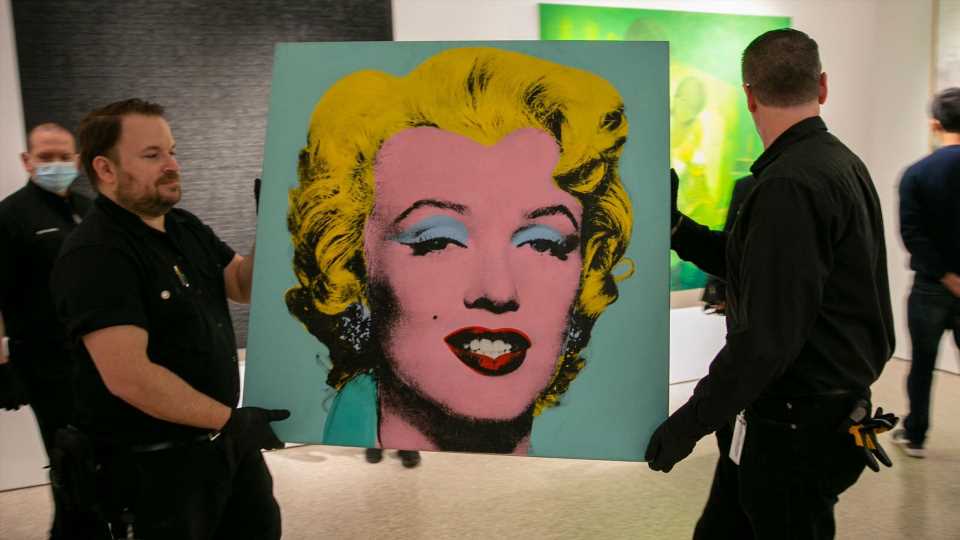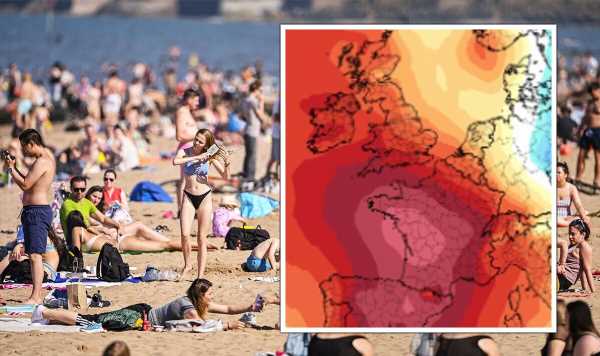Like most people these days, the rising London rapper Central Cee is having trouble keeping track of time. His debut mixtape, Wild West, dropped just over a year ago, but the 23-year-old MC says he feels like he’s been living the life of an internationally known artist for much longer. “It’s like I’m lost in time,” he explains over Zoom. “I wrote something on Insta, I thought something was two years ago. Really, it was only a year ago, and I was just lost in time. I had to delete the story.”
Cee has indeed had a busy year. Following the success of Wild West, he dropped his second mixtape, 23, in March. It debuted at the top of U.K. charts. As a result, he’s quickly becoming the face of London’s resilient drill scene, as the Chicago-born sound makes its way around the rap diaspora. Born Oakley Neil H T Caesar-Su, Central Cee grew up in the West London neighborhood of Shepherd’s Bush, an area that’s integral to the current wave of U.K. drill, a scene that has been on the rise since the 2010s. It’s also a region with one of the highest rates of violent crime in the city. Cee’s raps have a calm and collected cool about them, but underneath you get the sense there’s more deeply rooted pain.
On 23’s closing track, “Lil Bro,” he builds on a sturdy emotional foundation, rapping with clarity over fleet-footed drums and gut-punching bass courtesy of producers Dan Diggas & Chucks. He shares the track with his real-life little brother, Juke Caesar (credited as “Lil Bro”). The two siblings volley verses, with Cee trying to keep his kid brother out of the streets. “I thought the roads was cool as a young boy/It’s not though, I got misled,” he raps. The track is bold in its sincerity, the kind of move that could ring hollow if it weren’t delivered with the grounded intensity that Central Cee seems to bring to all of his music.
“I was just using it at first to just get how I feel out, and just to say how I feel, like therapy,” he recalls of his introduction to rapping as a teenager. “I was actually saying quite deep things even back then. It was just hard times inspired me, really.” Cee says that he started going to the studio when he was around 14, and he wasted no time releasing music on the internet. “I think my first song I recorded, I released it. I just put it out, I didn’t care. I was always trying to get my music out there. It’s been a long time coming.”
When Cee dropped the single “Day in The Life” in 2020, his plans started to unfold. Racking up millions of views on YouTube and being reposted on popular grime blogs, the track puts Cee’s sly confidence on display. “Selling them party drugs/I’m the one that got the party turnt,” he raps, except you get the feeling that the drug trade is more a burden than a point of bragging. It’s what’s made Cee such a fast-rising voice. His music is a real depiction of making it out of a rough situation, no glorification needed.
He spoke with Rolling Stone about how he plans to approach his career with patience, what it felt like hearing his music on Atlanta, and why he considers himself a “hopeless romantic.”
In the U.K. right now, it seems like you’re one of the big acts out over there. How do you plan to cross over, or do you want to just keep it natural?
No. Yeah. Keep it natural. Of course. We do plan to do it. I don’t know exactly how to do it. Right now, I’m just in a planning stage, almost. I don’t want to, I could jump at a lot of features — I guess that there’s a lot of people that want to work — but it’s got to be the right move there. I’ve got to make the perfect move. I’m just waiting on that right thing. I just need something to click in my head right now. It hasn’t exactly clicked.
As a songwriter you tend to be really open in your tracks. That’s just natural for you?
Yeah. It’s just natural to me. That’s just how my music is. It’s as real as it gets, innit. I don’t really make that much music. I have to feel something to go to the studio and let it out there. And then, it’s just how it comes out, really.
What was inspiring you as you went into recording your latest project?
What inspires me a lot recently is the love that I get. Sometimes I have to remind myself that there’s people that actually love my music and that want to hear from me. That inspires me to want to make another song. Because to me, it’s not amazing to me. The music is just how I feel. It’s just like a page in my diary. I’m not amazed by my music, but the fact that other people are, that’s what makes me think, “Oh, OK, cool. Let me go make another song.”
On this project specifically, did you feel yourself progressing as an artist from your first mixtape?
Yeah, I guess so. Maybe, not as an artist, maybe just progressing as a human, and then that just projects into being an artist. Just growing up and becoming more, I don’t know, I might be becoming a bit more articulate, a bit more open to seeing new things.
The first song I heard of yours was “Commitment Issues.” It seems like the way you rap about romance is from a kind of mature perspective.
Yeah. It’s just real, bro. I don’t know, bro, I’m not a fan of “hoes” and “bitches,” and all that, and whatever. I’m just, I don’t know, I’m a normal person and it probably comes out in my music.
Would you consider yourself a romantic?
No. No. I’m a hopeless romantic.
Why do you say that?
Because I’m so focused on other things, romance is just all the way in the back of my mind. It’s definitely not on the forefront. I can’t really put too much time into it. A relationship is like a career, innit? It takes dedication. Because I’m so focused on my career and my life situation, I can’t really put too much time into a relationship, or anything like that.
You really started blowing up right when the pandemic was happening. Do you feel like the pandemic gave you a different perspective on things, as you came up?
Yeah. It was good for my career, because it slowed everything down for me. Really, I was already levelheaded and it wouldn’t have been too hard for me, anyway. I’m pretty sure I would’ve stayed composed, but it helped me do that because it was all slowed down. It would’ve been quite a shock, I guess. I don’t know how certain people do it, they go from just being a regular fucking citizen to whatever you want to call it, “a famous rapper,” or something. One minute you’re just a normal guy, and next thing you know you’re doing shows and meeting loads of people and being around a lot of fake energy, and stuff like that. That’s probably quite hard, but for me, I just blew in the comfort of my home, basically. I just stayed around the exact same people. I didn’t have to meet anybody. I didn’t do any shows for a year, and it helped me stay grounded, I guess.
I remember Drake posted a video of him listening to one of your songs. What did it feel like to see big names start to recognize you like that?
It was cool. It still is. I was thinking to myself, prior to it, I was thinking because, you know, I was making noise. I’m thinking, “I know Drake listens to U.K. music. I know this guy must have seen my shit.” I knew it was just a matter of time until he showed me love, really. And it happened, innit.
Thinking about U.K. hip hop right now, it seems like the grime era had a big moment internationally, and now this is a new generation that you’re a part of.
Yeah. It’s a whole new thing. I’ve been a fan of new music forever, innit. I’m not just a fan, but I almost studied it. So I know that grime era well. It’s interesting to see the difference. I was comparing it the other day. That grime phase was sick and there was a lot of eyes on U.K. music at the time, and then that interest started to fade out, and drill seemed to pick it up again. It’s up to us to keep it alive, because it could definitely die out the same way. People can definitely lose attention. I don’t know how much of impact we’ve solidified in the whole global music scene. I don’t want it to die out.
I saw a video of you recently on TikTok where you’re performing in front of this gigantic crowd in Lagos. Was that your first time out there?
That was my first time in West Africa as a whole. It surprised me. Every time I go out to a show, one of my own shows, it surprises me when I get a good reception. So it’s a good feeling. Especially, over there, that’s so far from home. It’s mad to see it, still.
In the new season of Atlanta, they’re in London for a bunch of it. They used your track in there.
I saw that. Yeah. I didn’t really know how big of a show that was until I saw quite a lot of tweets, people mentioning that I was in the thing, it was good.
You didn’t know beforehand that was going to be in there?
No. I didn’t even know.
https://www.instagram.com/p/CNTB-ICDeGr/
A post shared by 📲 (@centralcee)
What do you feel is the difference between U.K. listeners and American listeners?
I think American listeners are a little more open-minded to rap music. Rap music is pop music in the U.K., innit. But it’s been like that in America for a long time. Since the fucking Nineties it was on the forefront of music. It’s only been since maybe 2016 where the U.K. would be showing love to the culture like that. So it’s still new. People are still getting used to it.
When can fans expect the album?
I don’t know. It’s all up in the air right now, would take every step as it goes. I think maybe they might be more inclined to get another mixtape before an album. Yeah. The album’s got to be a serious thing. I’m definitely not rushing it.
Do you even see an album as something you need to think about?
I see a lot of people talking about mixtapes and albums almost being the same thing. I’m telling you now, it’s not going to be this. My idea of a mixtape and an album is definitely not the same. When it comes to album mode, you will see a difference in quality of music. And, I don’t know, maybe vulnerability in man’s lyrics, more so, and just more. Everything’s going to improve when it comes to the album. I ain’t really got started, yet.
Is there anything coming up in the short term that people should look out for?
Just expect the unexpected, really. I don’t even know what’s coming.
Source: Read Full Article


